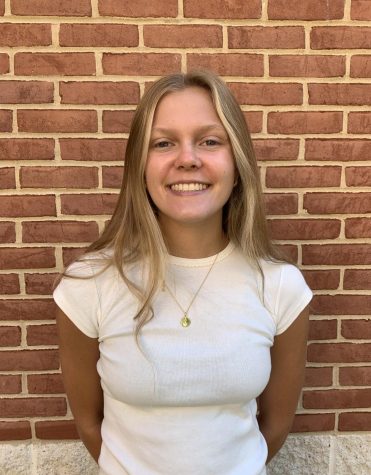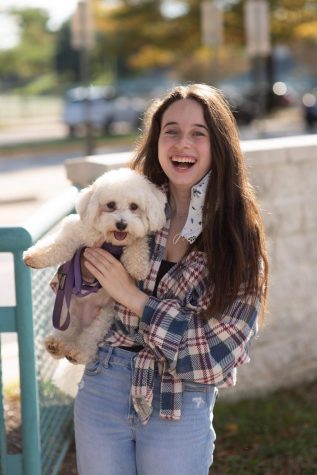To defer or to commit: seniors have a difficult choice this fall
Graduated seniors must make the decision whether to defer from their schools, following new information about school plans in wake of the COVID-19 pandemic.
July 8, 2020
Graduated senior Lucas Arulpragasm sits in front of his computer, attentively staring at the screen and waiting for an announcement from his dream school, Cornell University. He committed to Cornell earlier in the year, but now, any fall plans could vanish. Because of the worldwide COVID-19 pandemic, colleges across the nation have been converting to online classes for the fall semester, and Lucas worries that Cornell might be next. He eagerly awaits news from his school, but none comes. Without any guidance from his college, Lucas must decide whether he wants to commit with the risk of online classes, or defer from his dream and wait until next year.
As COVID-19 continues to take a devastating toll on the United States and the world at large, colleges have begun to update their first semester schedules in order to prevent the spread of the virus. However, with colleges at various stages in their planning processes, many admitted students are left with few clues on how they will be taking their first courses — whether classes are online, in-person or a mix of both. While these circumstances persist, Whitman’s graduated seniors now have to choose whether or not to commit to attending college this coming fall, risking the possibility of online learning and a semester of uncertainty.
Some colleges are failing to communicate how the fall semester might proceed during the pandemic, leaving their student body in the dark. This lack of dialogue has forced certain graduated seniors to commit or to defer without knowing their school’s plans.
One of these colleges is Arulpragasm’s dream school, Cornell. In an announcement on their website, Cornell staff explained that the university needs time to take into account “both the guidance of public health officials and a careful analysis of our own situation” before they decide on a course of action.
Arulpragasm is admitted to Cornell and decided to remain committed to any form of classes offered this fall. This decision was not easy, but it was the best choice in light of the global situation, he said.
“I heavily considered deferring my application and taking a gap year,” he said. “The reason I didn’t is because if the global situation was so bad that colleges would have to be online, then I most likely would not be able to work, rendering my gap year useless.”
Though Cornell has not been communicative of their plans for the fall, other schools have already determined their approach for the next school year. California state schools have cancelled in-person classes for the fall, in response to “evolving data” surrounding the virus’ progression, said Tim White, the Chancellor of the California State University system.
Graduated senior Ellie Block is committed to San Diego State University and is grateful for the school’s active communication with its students. This consistent communication, along with White’s early announcement, shows that “the California school system cares about their students’ safety,” she said. Block is still enrolled for the fall semester at SDSU despite their decision to close their campuses.
“It is hard for me to make any other gap year plans due to the uncertainty of COVID-19,” she said. “College is definitely something I want to do next year even if the circumstances aren’t as I originally imagined them.”
The University of South Carolina has also released their arrangements for the coming school year. Students will start the year on campus and will not have their fall break which usually takes place in early October. After Thanksgiving break, students will transfer to online classes to prevent bringing the virus onto the campus. Graduated senior Lily Nowell is committed to USC, and does not plan on deferring because of the university’s changes, she said.
“Since some schools aren’t even going back at all in the fall, I was really excited that USC decided to have in-person classes,” Nowell said.
Though some graduates still plan to attend their college’s classes in the fall, other seniors have decided to defer and take a gap year. Graduated senior Emma Iturregui is committed to Tufts University, but has sent a request for a gap year.
“I had my share of online school this past semester and didn’t enjoy it,” Iturregui said. “In my opinion, college is an even more critical part of my education than high school. I don’t think I’ll receive the same opportunities for self growth and actual learning online or with a lot of social restrictions.”
Along with her dislike of online classes, Iturregui is struggling with symptoms of Lyme’s disease and wants to be completely recovered before starting college. Taking a gap year will also be an opportunity to become fluent in Spanish by spending time with her Spanish-speaking relatives, she said.
Graduated senior Siena Smith has also requested a gap year before attending McGill University, in Montreal, because her favorite aspect of the school is no longer guaranteed: the city life.
“I was really looking forward to exploring and immersing myself in the city,” Smith said. “I’ve realized that the odds of me actually being able to do that are going to be very slim.”
Some students who had already planned on taking a gap year before the pandemic are now looking back on their decision with new levels of confidence. Graduated senior Lily Goldberger signed up to take a gap year back in October, and is doing a program provided by her summer camp, Camp Tel Yehudah.
“The pandemic makes me want to take a gap year even more,” Goldberger said. “I would rather not do online school in the fall and pay for it if that happens.”
Differing degrees of communication from colleges about their plans for the upcoming school year have led some graduates’ to base their decision on a wide variety of sources, such as their dislike for online learning or their worry about a useless gap year. Whitman’s College and Career Information Coordinator Anne Hutchens does not have a one-size-fits-all solution to whether a student should defer or commit based on the effects of the virus.
“There’s no wrong answer,” she said. “As long as it’s your family’s answer, and that’s what your family’s comfort level is.”









